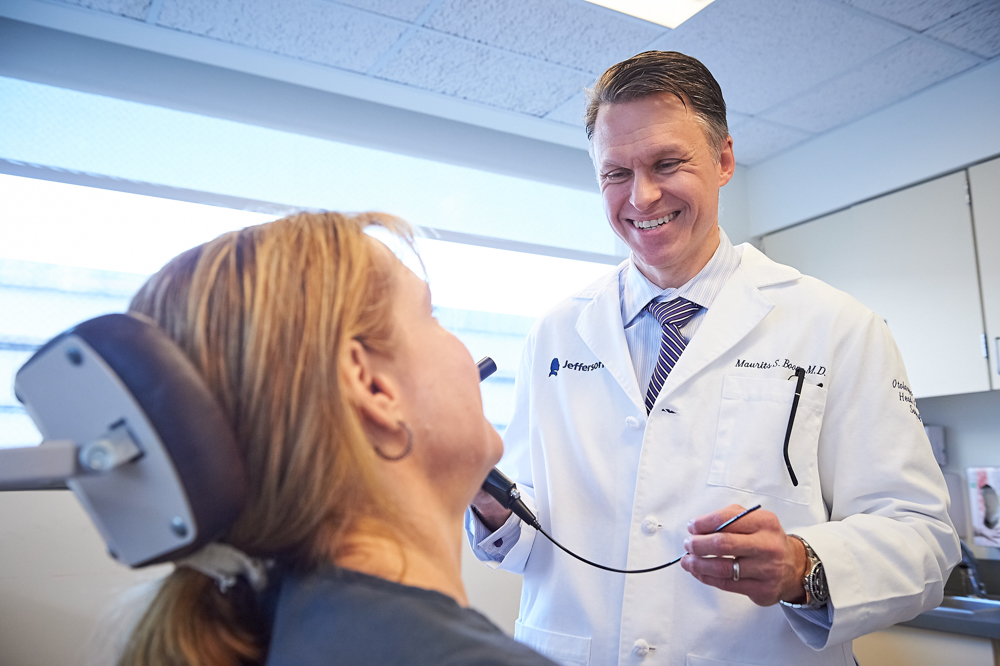ENT Doctor Tips for Managing Snoring and Sleep Apnea
ENT Doctor Tips for Managing Snoring and Sleep Apnea
Blog Article
Checking out the Field of Otolaryngology: What to Expect When You Get In Touch With an ENT
Otolaryngology, frequently described as ENT, incorporates the diagnosis and treatment of nose, throat, and ear disorders. Otolaryngologist. For those experiencing related problems, seeking advice from an ENT professional can give clarity and alleviation. Understanding what to anticipate throughout such assessments is important for effective communication and treatment. This review will lay out vital elements of the ENT experience, consisting of common factors for visits and the processes associated with medical diagnosis and treatment
Comprehending Otolaryngology: A Summary
Otolaryngology, typically described as ENT (Throat, nose, and ear) medicine, is a specialized branch of medicine that concentrates on the diagnosis and therapy of conditions affecting these vital areas of the body. This area incorporates a wide variety of disorders, consisting of those pertaining to hearing, equilibrium, respiratory system function, and speech. Otolaryngologists are educated to take care of both clinical and medical therapies, making use of innovative techniques and innovations. Their experience prolongs past standard disorders, resolving concerns such as allergies, sinus infections, and hearing loss. In addition, they play a vital role in the administration of head and neck cancers, supplying comprehensive care customized to specific person requirements. In general, otolaryngology remains important for maintaining health and wellness and top quality of life in afflicted people.
Common Factors to See an ENT Professional
Numerous individuals seek the expertise of an ENT professional for a range of factors, showing the diverse nature of conditions that influence the ear, throat, and nose. Typical problems consist of persistent sinus problems, which often results in persistent nasal congestion and face discomfort. Allergic reactions and their associated signs, such as sneezing and itching, also motivate sees to these professionals. Hearing loss, whether unexpected or steady, is another significant reason for appointment. On top of that, people might look for assessment for throat disorders, consisting of persistent hoarseness or swallowing difficulties. Sleep apnea, characterized by disturbed breathing throughout sleep, is regularly resolved by ENT professionals as well. Each of these problems highlights the value of specialized care in handling complex ENT-related health issues.
Planning for Your ENT Consultation
When preparing for an ENT consultation, it is important to collect relevant information and take into consideration any details issues. Clients need to compile an in-depth case history, including previous ear, nose, or throat issues, surgical treatments, and present drugs. Documenting symptoms-- such as regularity, period, and extent-- can provide beneficial understandings for the ENT expert. In addition, individuals should prepare a listing of questions they desire to ask, guaranteeing that all problems are attended to throughout the browse through. Bringing along any type of appropriate medical documents or test outcomes can further help the ENT in recognizing the client's problem. Ultimately, individuals must verify their consultation information, consisting of time, date, and location, to minimize any kind of final confusion. Proper preparation can improve the efficiency of the examination and result in much better results.

What to Expect Throughout the Examination
As the consultation begins, the person can anticipate to participate in a complete discussion with the ENT professional regarding their signs and clinical history. The professional will certainly ask about the period, frequency, and extent of symptoms such as hearing loss, nasal congestion, or sore throat. Additionally, the person's previous medical problems, medications, and any pertinent household background will be Voice examined, helping the professional in developing a complete understanding of the client's health. The ENT might also inquire about lifestyle factors, such as exposure to irritants or irritants. This open discussion develops a structure for the consultation, making sure that the patient's problems are addressed and establishing the stage for any type of necessary assessments or referrals for therapy.
Analysis Tests and Procedures in Otolaryngology
An array of analysis tests and treatments are vital in otolaryngology to accurately assess and diagnose problems influencing the ear, throat, and nose. Usual examinations include audiometry, which measures hearing feature, and tympanometry, analyzing center ear pressure. Nasal endoscopy enables visualization of the nasal flows and sinuses, while laryngoscopy examines the throat and vocal cables. Imaging strategies, such as CT scans and MRIs, give comprehensive sights of head and neck frameworks. Allergic reaction testing might additionally be carried out to recognize triggers for sinus or breathing concerns. These diagnostic tools make it possible for ENT experts to create a complete understanding of clients' problems, guaranteeing tailored and efficient monitoring plans. Correct medical diagnosis is important for successful therapy end results in otolaryngology.
Therapy Alternatives Supplied by ENT Specialists
ENT professionals offer a selection of treatment options tailored to attend to particular conditions affecting the nose, throat, and ear. These therapies range from conventional methods, such as medicine and way of life adjustments, to more invasive treatments. As an example, allergic reactions might be taken care of with antihistamines or immunotherapy, while persistent sinusitis might call for nasal corticosteroids or sinus surgical procedure. For hearing loss, ENT professionals frequently advise listening devices or surgical treatments like cochlear implants. In instances of throat disorders, alternatives can include speech treatment or operations to remove obstructions. Furthermore, they might give advice for handling sleep apnea, including the use of CPAP devices or surgical treatments. In general, the goal is to enhance people' lifestyle through individualized care and reliable treatment methods.
When to Seek Follow-Up Treatment With an ENT
When to look for follow-up care with an ENT expert is essential for managing continuous symptoms or problems related to ear, nose, and throat conditions, recognizing. Clients should take into consideration setting up a follow-up appointment if signs and symptoms linger in spite of initial treatment, such as persistent ear pain, nasal congestion, or throat discomfort. Modifications in hearing, equilibrium issues, or unusual nasal discharge may likewise necessitate further analysis. In addition, if a patient experiences adverse effects from suggested drugs or has actually gone through a procedure, follow-up care is essential to keep an eye on recovery and resolve any problems. Timely examinations can assure effective monitoring of problems, stop prospective issues, and provide satisfaction regarding one's wellness. Looking for follow-up treatment advertises positive health monitoring in otolaryngology
Often Asked Questions
What Qualifications Should I Seek in an ENT Professional?
When looking for an ENT professional, one need to seek board accreditation, appropriate experience, and strong patient evaluations. Additionally, effective communication abilities and a compassionate approach can substantially boost the overall therapy experience.
How Do I Choose the Right ENT for My Needs?
Selecting the best ENT expert includes evaluating their credentials, experience, and client testimonials. It is necessary to ponder their interaction style and approach to therapy, ensuring they line up with the person's specific health requirements and choices.
Exist Any Kind Of Risks Related To ENT Procedures?
The threats related to ENT treatments might include infection, bleeding, anesthetic issues, and prospective damages to bordering structures. Clients need to talk about these threats with their doctor to recognize individual worries and guarantee educated decisions.
Exactly How Can I Handle Anxiety Prior To My ENT Consultation?
To manage stress and anxiety before a visit, people can exercise deep breathing workouts, picture positive outcomes, prepare questions beforehand, and seek support from friends or household, promoting a feeling of reassurance and calmness.

What Should I Do if I Experience Adverse Effects From Therapy?
If negative effects from therapy take place, the person must without delay report them to their medical care service provider. Otolaryngologist. Changes to treatment or added interventions may be essential to ensure safety and security and efficiency in managing their problem. As the assessment starts, the patient can anticipate to engage in a thorough conversation with the ENT specialist about their symptoms and clinical history. These diagnostic devices allow ENT professionals to create a complete understanding of people' conditions, making sure customized and effective administration strategies. ENT specialists provide a variety of therapy options tailored to attend to details problems impacting the ear, nose, and throat. When seeking an ENT specialist, one ought to look for board certification, appropriate experience, and strong person evaluations. Selecting the ideal ENT specialist entails assessing their certifications, experience, and individual reviews
Report this page